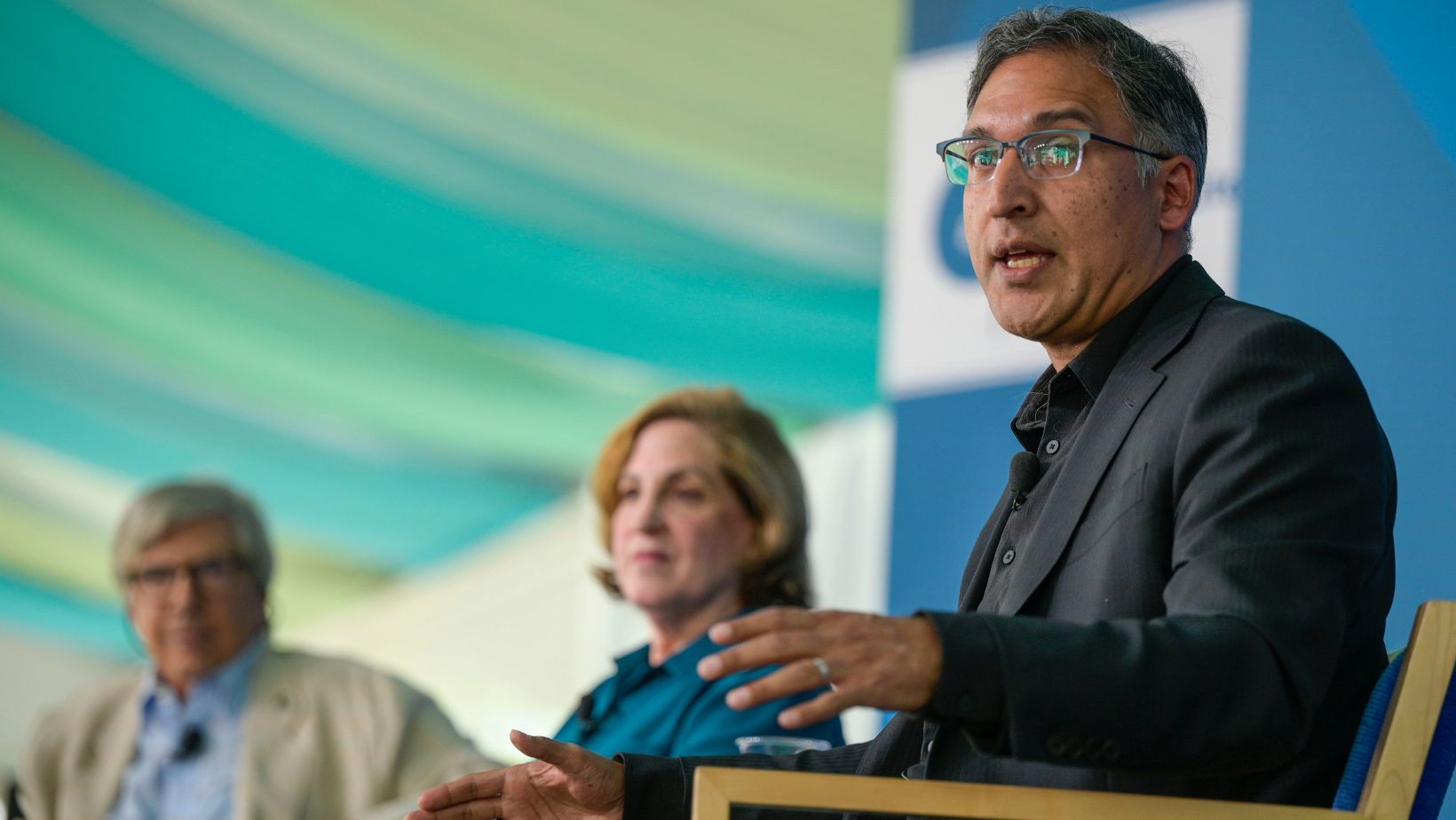Meryl Justin Chertoff is the director of the Institute’s Justice and Society Program.
America’s religious diversity, historically its pride and potentially a source for engagement around the common good, has for the last months occupied us at the Justice and Society program as we worked with co-chairs Madeleine Albright and David Gergen on the Inclusive America Project. With the benefits of the knowledge and experience of a distinguished panel drawn from the fields of education, youth service, government, media, and religiously affiliated organizations, the Inclusive America Project is working to preserve our nation’s collective strength by promoting the core value of religious pluralism based on freedom of worship, respect for the rights of others, and recognition of common values shared by all.
On April 26th, our panelists will meet to put the finishing touches on a white paper that will recommend, among other things, more interfaith endeavors to serve the common good; greater intentionality in how colleges and universities deal with religious diversity; improved public-private cooperation on issues such as counter-extremism and disaster relief; and more opportunity for religious minority groups to tell their own stories in the media.
Last week when the Boston Marathon was bombed, my spirit faltered. Maybe it was because after seven years of higher education there, Boston is in memory my city on the hill, or maybe it was the email from one of our panelists informing us that the Chinese graduate student killed in the bombing was a member of the local chapter of his campus-based organization. Or maybe it was just that the photo of the surviving, sweet-faced suspect betrayed not a trace of events to come.
I picked up the phone to call one of our panelists, Eboo Patel, whose Interfaith Youth Core is one of the white paper’s best practice models. Eboo, like our other panelists, has generously shared contacts and insights with us over the past months. On that call, he explained why interfaith work matters more than ever in the wake of the Boston Marathon bombings, thoughts that he presented in greater length in his article on the Huffington Post website. In his words:
1. Interfaith helps harmonize people’s various identities.
When interfaith cooperation is done well, it not only helps people from different faith and philosophical backgrounds get along, it creates space for the diverse identities within each of us to become mutually enriching rather than mutually exclusive… What if the Tsarnaev brothers were involved in discussions with people from other backgrounds about how their faith identity was mutually enriching with their nationality and citizenship? Perhaps they would have been less susceptible to the divide-and-destroy tactics of extremists.
2. Interfaith efforts help us to separate the worst elements of communities from the rest.
Developing a positive meaningful relationship with someone from another religious community improves your attitude toward the entire community, making it less likely that you will view a whole group of people through the actions of its worst elements. This becomes especially important at a time like this, when the Muslim identity of the two Boston Marathon terrorists has cast suspicion on Muslims as a whole.
3. Interfaith efforts remind us America is about welcoming the contributions of all communities and nurturing cooperation between them.
The interfaith ceremony that took place three days after the marathon bombings in Boston was a reminder that not only is Boston a city of many religions, but that a variety of faith and philosophical traditions are sources of hope and healing at times of grief. At the ceremony, Catholic, Protestant, Jewish, Muslim and Greek Orthodox leaders offered solace from their traditions to their city and the country… These times require all of us to be interfaith leaders, to signal clearly that the worst elements of every tradition represent nobody. The murderers of all communities belong only to one community: the community of murderers.
The Inclusive America Project white paper will appear as a link in this space when it is finalized in early June, and it will be discussed at a pre-opening panel to the Aspen Ideas Festival featuring David Gergen on June 26. The following day, the Ideas Festival will hold a panel discussion on Religious Pluralism and the American Civic Project. On July 11, Professor David Campbell, co-author of “American Grace,” a landmark study of America’s religious diversity that has formed part of the backdrop for the forthcoming white paper, will discuss the American religious landscape and its implications for civic engagement and national unity at a Society of Fellows program in Aspen.

